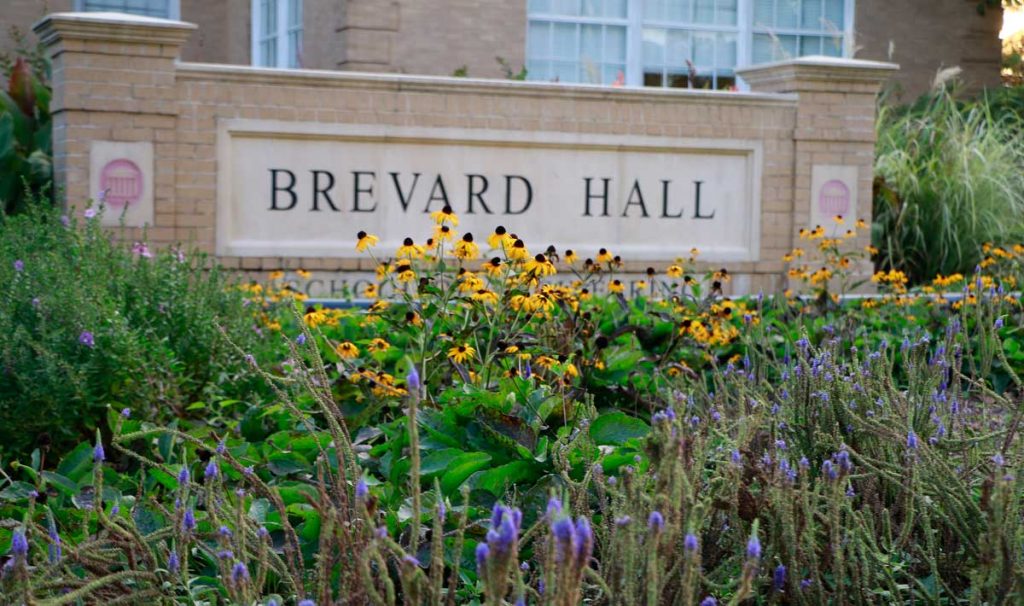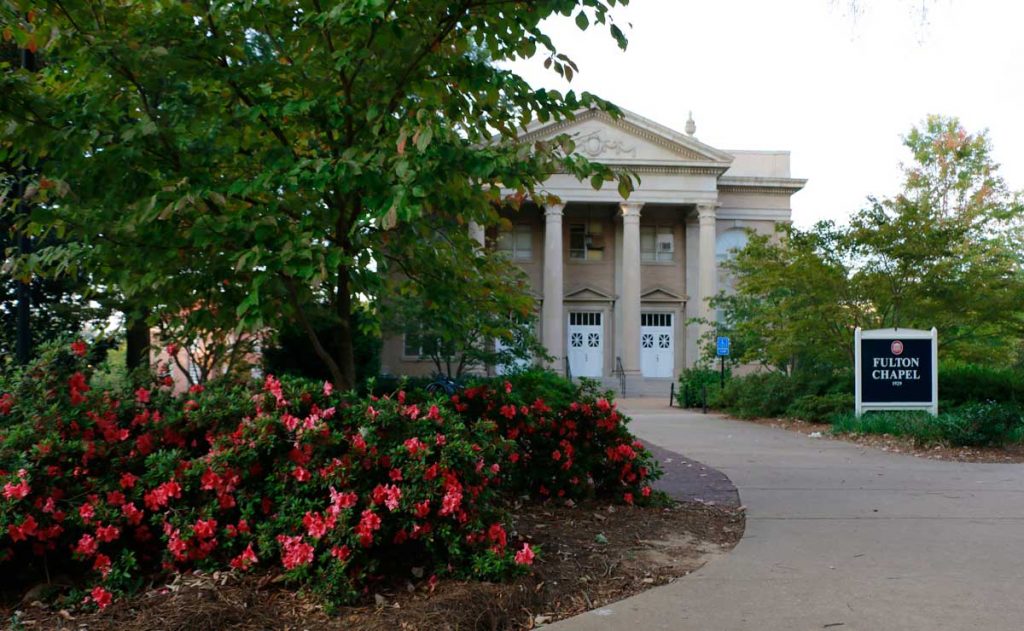Jeff McManus knows plants and people.
As director of Landscape Services, McManus manages the landscaping for the university’s main campus, airport and golf course.

Jeff McManus is the director of Landscape Services at Ole Miss, contributing to the many awards the campus has received due to its beauty. Photo by Xinyi Song
Former Ole Miss Chancellor Robert Khayat brought McManus from the palm trees and sandy beaches of Miami to the towering pines and grassy hills of Oxford.
“Chancellor Khayat was really gearing up the campus to become one of the nation’s prettiest campuses,” McManus said. “You knew he had a passion for how Ole Miss felt, the experience on campus, and the looks were a big part of that.”
Raised in the small town of Douglasville, Georgia, McManus almost never got involved in the landscaping industry. At Auburn University, McManus originally planned on pursuing a career in marketing before he failed a course.
McManus switched to horticulture, the study of plants, thanks to a professor who inspired his love for nature. His emphasis was on ornamental horticulture, which focuses on the growing, arranging and tending of decorative trees, plants and flowers.
“One professor, Dr. Harry Ponder, knew all the plants. I was amazed by how much he knew and how he talked in detail about how to care for certain plans,” McManus said. “After weeks in the class, even though he knew all the plant names, the thing that stood out the most to me was he knew my name and every student’s name in the class.”
To McManus, Ponder modeled what leadership and success look like.
“He knew us and wanted us to be successful,” McManus said. Ponder helped prepare students for careers in horticulture.

Jeff McManus’ landscape work can be seen all around campus, including here at Brevard Hall. Photo by Xinyi Song
McManus landed his first job at age 24 at Grand Cypress Resort in Orlando, Florida. After a year, he moved to the Turnberry Isle Resort and Club in Miami, managing a 300-acre golf resort.
“It was different: All of the sudden, I was in a subtropical climate. There were palm trees and tropical plants, different from what I learned,” McManus said. “I was in a totally different culture, too; I was a Southern boy who spoke Southern.”
Out of his element, McManus was forced to adapt and learn to unify a team of diverse backgrounds.
“There were people who hated each other just because they were from a different culture,” McManus said. “Learning how to lead and becoming a better leader was big challenge for me at Turnberry.”
These early life lessons helped prepare McManus for Khayat’s challenge in 2000: a five-star campus.
“Ole Miss had the bones and the structure. Khayat worked on getting buildings pretty. They were nice but needed to be renovated,” McManus said. “We had really pretty trees, but we didn’t have really pretty grass or shrub beds. It’s not what it is today.”
McManus’ first orders of business on Ole Miss’ campus started with his team. McManus built trust and worked to build relationships with employees. Today, he oversees a staff of 31 and manages a $2 million operating budget.
Denise Hill, the current superintendent of Landscaping Services, first started in 2000 a couple of months before McManus was hired. Even though she was just on the landscaping crew, which helped pull the weeds and trim the flower beds, McManus still reached out to her in the beginning.
“When he first came on board, the leadership he provided was amazing. You learned how things worked, and step by step, things got a little bit better,” Hill said.
The process of overhauling the campus took time and called for more outside reinforcements.
David Jumper, the current assistant director of the Ole Miss Golf Course, was hired in 2000 to manage all the grass, turf and weeds around campus a month after McManus took over. The campus was not well-maintained,

Jeff McManus’ landscape can be seen in front of Fulton Chapel. Photo by Xinyi Song
and weeds ran rampant.
“Jeff realized how bad the campus was. He brought me in and told me, ‘It’s yours,’” Jumper said.
Over time, McManus helped grow the campus into one of the nation’s best.
“I don’t call him a boss; I call him a leader. He’s an excellent leader and mentor,” Hill said. “The great thing about Jeff is he empowers people. He trains them and empowers them to do their job.”
McManus feels the same way about his employees.
“We have great people. If they don’t love doing this, we tell them to find something they love. Life is too short to do hard work and not like it,” McManus said. “We want people to have excitement, enthusiasm and passion.”
Since 2000, McManus has seen what he likes to describe as “five national championships” for landscaping. A perennial contender on rankings for most beautiful campuses, the job done by McManus and his team has been ranked No. 1 most beautiful campus five times, the most recent by USA Today in 2016.
But to McManus, the national rankings aren’t the only things that matter.
“We had a student who we worked with come back to us and say, ‘Thank you for letting me work with y’all. You not only taught me how to do this out here, but you taught me some life lessons along the way,’” McManus said. “That’s a bigger win and more purposeful.”
The maintenance of the campus requires a team effort.
“I love my job and what I do, but the people are amazing,” Hill said. “Everyone tries to help each other out, even if it’s not in their area.”
The management of more than 1,000 acres starts bright and early at 6 a.m. Workers begin at daylight, picking up trash and cleaning the campus from the day before.
The grass in the Grove and the Circle is mowed once a week. Crews place pine straw, fix and repair shrub beds and help maintain trees around campus.
“We have someone full time spray for fire ants and weeds,” McManus said. “If we didn’t constantly treat for ants, we’d be run over by them.”
All of this is critical in maintaining the towering oaks, clean shrubs and bright flower beds.
It’s not just current students who appreciate the beauty on campus; studies show prospective students are heavily influenced by campus appearance in their decision to attend a school.
“Sixty-two percent of prospective students who haven’t decided whether or not they are going to come to a college campus decide in the first few minutes based on the appearance,” McManus said. “The biggest factors on that survey were appearance, which includes landscaping, the way buildings looked and cleanliness.”
As a result, McManus and his crew know they have a crucial role in helping recruit potential students to Ole Miss.
“I have a few minutes to connect with students through landscaping to help influence them to come here,” McManus said.
McManus credits all of his team’s success to one central idea.
“We want to grow the people who grow the landscapes,” McManus said. “We grow great people.”






